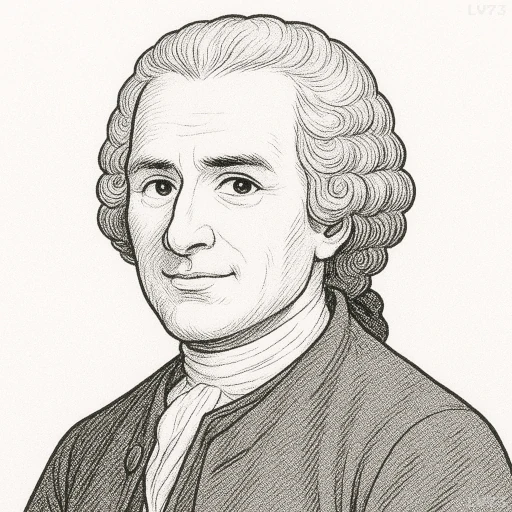“We pity in others only the those evils which we ourselves have experienced.”

- June 28, 1712 – July 2, 1778
- Born in Geneva
- Philosopher, political philosopher, writer, composer
table of contents
Quote
“We pity in others only the those evils which we ourselves have experienced.”
Explanation
In this quote, Jean-Jacques Rousseau reflects on the nature of empathy and pity. He suggests that our ability to feel compassion for others is often limited to the hardships or suffering we have personally gone through. In other words, we are more likely to pity or sympathize with the misfortunes of others that we can relate to because we have felt them ourselves. Rousseau’s observation speaks to the subjective nature of empathy, where our personal experiences shape the way we understand and respond to the pain of others. We are more attuned to suffering that mirrors our own, as it evokes a deeper emotional response.
Historically, this insight is connected to Rousseau’s broader views on human nature and society. He believed that human emotions are shaped by personal experience and that individuals often fail to understand the struggles of others if they haven’t encountered similar circumstances themselves. Rousseau’s philosophy often highlighted the importance of authentic experience and self-awareness, suggesting that true empathy requires personal reflection and an understanding of one’s own vulnerabilities. However, his statement also hints at the limitations of human compassion, as it can be narrow and self-centered, shaped by individual perspective rather than universal concern for all suffering.
In modern times, this quote remains relevant in discussions of empathy and social justice. It speaks to the challenges of extending empathy to those whose experiences are far removed from our own, whether in the context of poverty, discrimination, or injustice. Our ability to truly understand the struggles of others is often constrained by the limits of our own experiences. This insight encourages us to reflect on how we can broaden our empathy beyond the suffering we have personally known, striving to understand the pain of others even when we haven’t directly experienced it. It calls for a more universal approach to compassion, one that seeks to acknowledge and alleviate the suffering of all people, not just those whose experiences we can relate to.
Would you like to share your impressions or related stories about this quote in the comments section?


